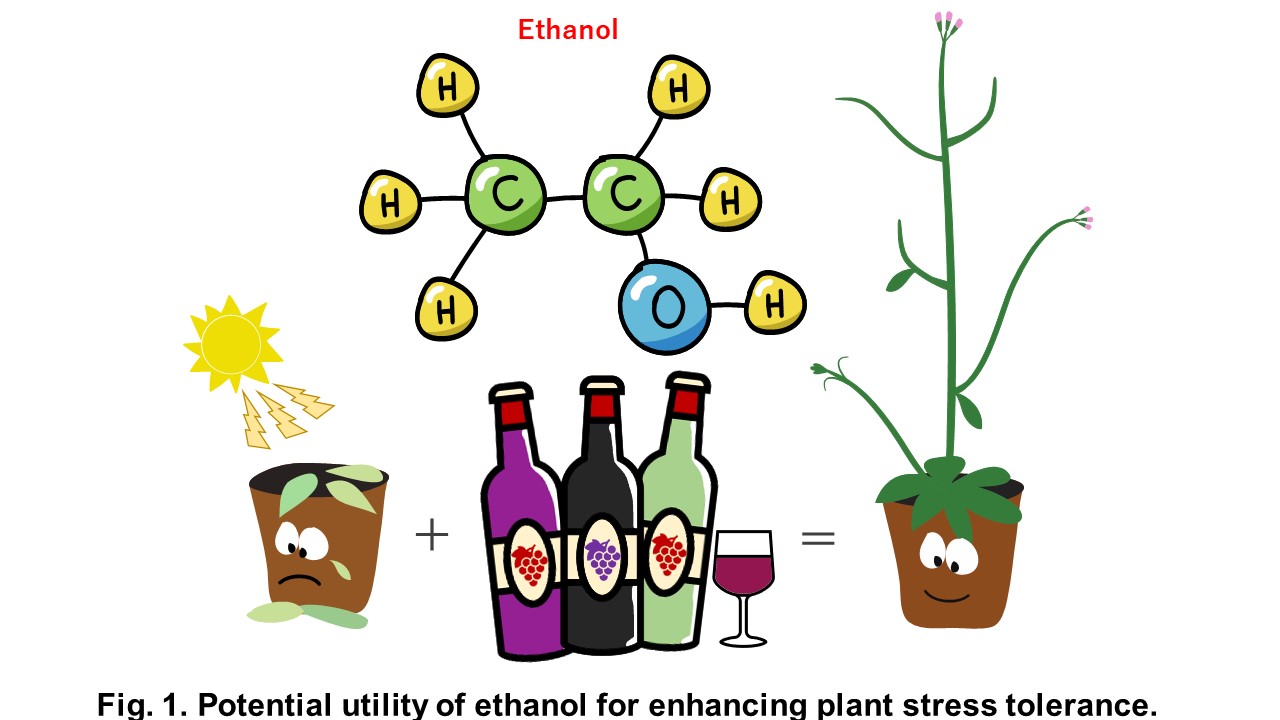Ethanol pretreatment stimulates molecular processes that help crops survive heat stress during summer
Published in Sustainability

Global warming, which has resulted in increased yield losses among agricultural crops, is a serious problem worldwide that must be solved to establish sustainable societies. Thus, agricultural sustainability depends on the development of technologies that can minimize crop yield losses.
Genetic engineering is a useful technique for enhancing stress tolerance; however, there is a demand for affordable, simple, and environmentally friendly technology that can increase crop stress tolerance, but does not require genetic engineering. This is because genetically modified plants are not readily available in all countries. Accordingly, pretreating crops with safe chemical compounds is a promising approach. Scientists have assessed the viability of this approach by analyzing various chemicals in terms of whether they can increase plant tolerance to environmental stresses.
In this study, we demonstrated that a pretreatment with ethanol at a low concentration (i.e., 0.12%, which corresponds to the alcohol content of 100-fold diluted wine) increases heat tolerance without suppressing plant growth (Fig. 1). Hence, this pretreatment represents a cost effective, simple, and environmentally friendly way to protect crops from the detrimental effects of global warming (Fig. 1).

We grew Arabidopsis, a non-crop plant often used for research, as well as lettuce and then added a low concentration of ethanol to the soil for several days. The ethanol-treated and untreated (control) 3-week-old Arabidopsis plants were then grown for 3 hr at temperature (50 ℃) high enough to induce heat stress. Only 10% of the control plants survived, whereas up to 70% of the ethanol-treated plants survived, reflecting the beneficial effects of the ethanol pretreatment (Fig. 2A). The ethanol pretreatment also improved the leaf growth of heat-stressed lettuce plants under field conditions (Fig. 2B).

We analyzed the molecular mechanisms underlying the effect of the ethanol pretreatment and identified a set of genes as well as a biochemical process activated by ethanol. Specifically, we detected the stimulation of the stress response known as the unfolded protein response (UPR) involving bZIP60 and Binding Protein 3 (BIP3) (Fig. 3), which function in an organelle called the endoplasmic reticulum (ER) to mitigate the effects of misfolded proteins that are produced during an exposure to environmental stress.

We also revealed that the ethanol pretreatment enhances the tolerance of various plants to drought (https://doi.org/10.1093/pcp/pcac114; https://link.springer.com/article/10.1007/s11103-022-01300-w) and high salinity (https://www.frontiersin.org/articles/10.3389/fpls.2017.01001/full), including rice, wheat, cassava, and Arabidopsis. We will further characterize the associated molecular mechanism and clarify the ethanol-mediated network enabling plants to adapt to environmental stress. Elucidating the mechanism may lead to the development of methods that improve and fine-tune the protective effect in a broad range of plant species.
Ethanol is cheaper and more readily available than other chemicals and reagents. Moreover, it is widely used as a disinfectant and food additive. Therefore, the ethanol pretreatment of crops may be acceptable to the general public. We intend to promote the use of this pretreatment as an agronomic practice that mitigates the adverse effects of global warming on crop production.
Follow the Topic
-
Plant Molecular Biology

An international journal dedicated to rapid publication of original research articles in all areas of plant biology.
What are SDG Topics?
An introduction to Sustainable Development Goals (SDGs) Topics and their role in highlighting sustainable development research.
Continue reading announcement


Please sign in or register for FREE
If you are a registered user on Research Communities by Springer Nature, please sign in